The Jealousy Man and Other Stories Read online
Page 6
One more thing. The power of imaginative projection is not the same as empathy. ‘That I understand doesn’t mean I care,’ as Homer says. Homer Simpson, that is. But in my case it is, unfortunately, one and the same thing. I suffer, suffer, with the jealous one. And that’s why I hate my job.
The wind pulled at the window sash, trying to open it. Wanting to show me something.
I fell asleep and dreamed of falling from a great height. And woke an hour later when the falling man hit the ground, so to speak.
I had mail on my phone. It contained a printout of Franz Schmid’s deleted SMSs and call logs. The night before his brother went missing he had, according to the log, called a certain Victoria Hässel eight times without reply. I checked the number and was able to confirm that it was the same Victoria I had briefly spoken to on Julian’s phone. But the feeling of someone hitting the ground from a great height, the distinct shiver, the sound of flesh against stone that you never, never forget, that didn’t come until I read the text message Franz had sent to a Greek number registered to Helena Ambrosia.
I have killed Julian.
* * *
—
Emporio was a tiny hamlet at the north end of Kalymnos where the main road simply came to a halt. The girl who came to my restaurant table reminded me of Monique. For a while, a few years, I saw Monique everywhere, in the features and eyes of every woman, in the smooth back of every girl, heard her in every word spoken to me by a stranger of the opposite sex. But with time the ghost had paled beneath the constant daylight of time. And after a few years I was able to get up and walk the streets of Athens and know it would leave me in peace. Until darkness fell again.
This girl was pretty too, although not of course as pretty. But in fact yes, she was. Slim, long-legged, with naturally graceful movements. Brown, soft eyes. But her complexion was spoiled by impurities, and she had no chin. What was it Monique lacked? I could no longer remember. Decency, maybe.
‘How can I be of service, sir?’
The slightly exaggerated courtesy of the phrase – which I had grown so used to hearing expressed with just a hint of ironic condescension from waiters in England – sounded touchingly honest in the mouth of this pure young Greek girl. She and I were the only ones in the charming little family restaurant.
‘Are you Helena Ambrosia?’
She blushed when she heard me speaking Greek and nodded in reply. I introduced myself and explained that I was there in connection with the missing Julian Schmid and saw the consternation that spread across her face as I told her what I knew of her association with Franz Schmid. At regular intervals she glanced over her shoulder as if to make sure no one came out from the kitchen and overheard us.
‘Yes yes, but what does this have to do with the one who’s missing?’ she whispered quickly, angry and flushed with shame.
‘You’ve been with them both.’
‘What? No!’ She got carried away and raised her voice, then lowered it once more to an angry whisper. ‘Who says so?’
‘Franz. When you met his twin brother Julian in the stone city Julian pretended he was Franz.’
‘Twin?’
‘Identical,’ I said.
The confusion was plain to see in her face. ‘But…’ I could see her running through the sequence of events in her head, see her confusion change to disbelief and change again to outrage.
‘I’ve…I’ve been with two brothers?’ she stammered.
‘Didn’t you know?’
‘How could I? If there really are two of them then they’re exactly alike.’ She pressed her hands to her temples as though to prevent her head exploding.
‘So Julian was lying when he told his brother he phoned you in the evening on the day after you met him in the stone city and explained everything to you, and said that you forgave him?’
‘I haven’t spoken to either one of them since then!’
‘What about that message you got from Franz. “I have killed Julian.” ’
She blinked and blinked. ‘I didn’t understand that message. Franz had told me he had a brother, but not that they were twins or that his name was Julian. When I read the text I thought maybe Julian was the name of a route he’d climbed, or a name he’d given to a cockroach in his room, something like that, that I was bound to get the explanation later. But we had just closed for the evening and I was very busy clearing up, so all I did was send a smiley in reply.’
‘I’ve read the texts you sent to Franz’s phone. All of them are fairly short answers to long messages. The text you sent the morning after you met Julian is the only one where you take the initiative, the only one where I notice, on your side, a certain…affection?’
She bit her lower lip. Nodded. Her eyes brimmed with tears.
‘So even though Julian lied about having told you he wasn’t Franz, it wasn’t until you met Julian that you fell in love?’
‘I…’ All the energy seemed to drain from her body and she slumped into a chair opposite me. ‘When I met…the one called Franz, I was very excited. And flattered, I guess. We met up at Palechora, where there are hardly ever any people, and certainly no one from this island who would know my family. It was very innocent, but the last time I let him kiss me goodnight. Even though I wasn’t in love, not really. So when he…that is, it must have been Julian, texted me and asked to see me, I said no. I had made up my mind to stop while the going was good. But he insisted in a way that…like he’d never done before. He was funny. Being self-deprecating So I agreed to a final, short meeting. And when we met at Palechora it was as though everything had changed. Him, me, the way we talked together, the way he held me. He was so much more relaxed and playful. And it was infectious. We laughed a lot more. And I thought it was because we had got to know each other better, that we were more relaxed.’
‘Did you and Julian have sex?’
‘We…’ She tensed and her face flushed. ‘Do I have to answer?’
‘You don’t have to answer anything at all, Helena, but the more I know, the easier it will be for me to solve the case.’
‘And find Julian?’
‘Yes.’
She closed her eyes. Looked as though she was concentrating hard. ‘Yes, yes, we did. And it was…very good. When I returned home that evening, I knew that I had been mistaken, that I really was in love and that I had to see him again. And now he’s…’
Helena buried her face in her hands. A sob came from behind the fingers. Fingers that were long and thin, like Monique’s, who used to hold them up and say they looked like spider’s legs.
I asked Helena a few more questions she answered honestly and straightforwardly.
She had seen neither Franz nor anyone pretending to be him after that last date at the fortress; she confirmed that she sent a text message to Franz’s number the morning after she’d been with Julian saying she hoped they could meet again soon but got no reply. Not until the evening when she received that short, enigmatic message ‘I have killed Julian’, to which she sent a smiley in reply. It was obvious she had not attempted to make any further contact, since she was the one who had sent the last message.
I nodded, mildly surprised to learn that the rules of the game remained unchanged since the days of my own youth and was able to confirm that the way she answered told me she had nothing to hide. Or more accurately, she was hiding nothing. She had the lover’s freedom from shame, in the belief that love is elevated above all else. Love really is the sweetest psychosis, but in her case it had now turned into the worst form of torture. It had been held out to her, and as quickly taken away.
I gave her my number and she promised to ring if she remembered something she wanted to tell me, or if one of the brothers got in touch. I saw how her face lit up when I held out this hope that Julian might still be alive; but by the time I left she was crying again.
* * *
‘Victoria.’ The voice sounded out of breath. Like someone who has just rappelled down after an ascent and hurried to the rucksack where the phone is ringing.
‘Nikos Balli, I’m a detective with the police,’ I said as I swung the hire car carefully around a flock of goats that had taken up residence on the asphalt outside Emporio. ‘We spoke briefly on Julian Schmid’s phone. There are a few questions I’d like to ask you.’
‘Unfortunately I’m on the peak right now. Can it wait until –’
‘Which peak?’
‘It’s called Odysseus.’
‘I’ll come there if that’s OK.’
She explained the route to me. Between Arginonta and Massouri, a turn-off to the left just before the hairpin bend. Park at the end of the gravel track by the climbers’ mopeds. Follow the track – or the other climbers – up the mountainside, eight or ten minutes’ walk to the lower part of the face, I’ll see her and her climbing partner on a broad ledge five or six metres above the ground, the natural footholds in the mountain will lead me up there.
Twenty minutes later I stood on a track on a barren mountainside with a couple of thyme plants the only vegetation, wiped the sweat from my brow and looked up at a limestone rock face about a hundred metres wide and some forty to fifty metres high that cut diagonally across the hillside like a wall. Spread out along the base of the wall I saw at least twenty ropes that ran between the anchors on the ground and the climbers on the wall. This was a type of sport climbing that, put simply, goes something like this: before the team of two starts out, the one who’s climbing first attaches one end of the rope to his harness, which also holds the number of carabiners he’s going to need on the route, often around a dozen. At intervals across the route metal bolts have been fastened to the rock face. When the climber reaches one of these he fastens a carabiner to the bolt and then fastens the rope to the carabiner. The second member of the team, the anchor on the ground, has a rope lock fastened to his climbing harness and the rope runs through this rope lock, in much the same way as the seat belt in a car runs between rollers. The anchor carefully pays out the rope as the climber ascends, the way you have to pull out a car safety belt slowly so that it doesn’t lock. Should the climber fall, the rope is pulled so swiftly that the lock clamps over the rope, unless the anchor has disengaged it completely. So if the climber falls, then he won’t fall much beyond the last carabiner to which he fastened the rope and be stopped there by the lock and the body weight of the anchor. In other words, the most common form of sport climbing is relatively free from danger, by comparison with, for example, free soloing, which involves climbing without ropes or any other form of security. Unlike the sport climber, the free solo climber has a life expectation shorter than that of a heroin addict, which is incidentally a fairly apt comparison. All the same, as I stood there, I felt myself shaking. Because nothing is completely safe, and sooner or later whatever can go wrong will go wrong. Some people think that’s a joke along the lines of Murphy’s Law, but it isn’t. It’s a matter of simple mathematics and logic. Absolutely everything that can happen according to physical law will, sooner or later, happen. It’s just a question of when.
I walked the last few metres up to the wall and located the ledge where a woman stood holding a rope that ran up the wall to a climber ten metres above her. I scrambled up to her using hands and feet.
‘Victoria Hässel?’ I asked, panting.
‘Welcome aboard,’ she answered without taking her eyes off the climber.
‘Thanks for giving me a moment of your time.’ I held on tight to a deep crack in the wall, leaned out cautiously and peered down. Only six metres and yet I felt the pull.
‘Afraid of heights?’ asked Victoria Hässel, still without having looked at me as far as I could tell.
‘Isn’t everybody?’ I asked.
‘Some more than others.’
I looked up at her climbing partner. A boy who looked to be quite a bit younger than her. And – judging by his uncertain footwork and the firm grip she kept on the belay device and rope – he had rather more to learn from her about climbing than the other way round. It was hard to judge Victoria Hässel’s own age – anything from thirty-five to forty-five. She certainly looked strong. Almost skinny, long-limbed, but with a muscular back under the taut training top. Sinewy underarms, resin on her hands and wearing climbing breeches. She had given my suit and brown leather shoes a rather disapproving look. I could feel my hair being blown about in the wind. Her own was held under a knitted cap.
‘Lot of climbers,’ I said with a nod in the direction of the wall.
‘Usually more,’ said Victoria, and focused her gaze on her climber again. ‘But there’s too much wind today, a lot of people sitting in the cafes.’ She nodded in the direction of the white-whipped sea.
From here we had a view of pretty much everything. The main road, the cars, Massouri centre, people like tiny black ants down there. Along the bare hillside below us I could see climbers approaching along the track.
‘You might not believe this,’ said Victoria, ‘but when the wind’s like this the ropes can blow right up and end high up in the mountain and snag up there.’
‘If you say so then I’ll believe it.’
‘Believe it,’ she said. ‘What’s this about, Mr Balli?’
‘Oh, that can wait until your climber is down.’
‘It’s an easy passage, go ahead, talk.’
‘I seem to remember hearing there’s a rule that you should concentrate on your climber when you’re securing the rope.’
‘Thanks for the advice,’ she said with a crooked smile. ‘But why not just leave that to me?’
‘Fair enough,’ I said. ‘But can I point out that your climber just clipped the wrong way round onto that last carabiner?’
Victoria Hässel looked sharply at me. Looked up at the carabiner I was talking about. Realised I was right and that the rope was running in the wrong direction. If he fell and he was unlucky the rope could slip out of the carabiner and he would keep on falling.
‘I saw that,’ she lied. ‘Any moment now he’ll hook the rope into the next carabiner and then he’ll be secure.’
I coughed. ‘Looks like the crux is coming up now, and if you ask me it looks as if it might give him trouble. If he falls there and the carabiner doesn’t take the fall, then the next one’s so low it won’t stop him before he hits the ground. Agree?’
‘Alex!’ she shouted.
‘Yes?’
‘You’ve threaded the rope the wrong way round on the previous carabiner. Don’t go any higher. Try to climb down and clip it on right!’
‘I think I better carry on up to the next bolt and clip on the right way there.’
‘No, Alex, don’t…’
But Alex had already moved away from the good fingertip holds and was on his way up to a large downward sloping hold which probably looked good to him but which, to the trained eye, appeared to have too much resin over it from where climbers before him had tried and failed to get a hold. And from where he was dangling there were no possibilities of retreat. His trouser legs flapped. Not because of the wind but as a result of the stress reaction climbers call ‘the sewing machine’ which, sooner or later, affects everybody. I watched as Victoria took up as much of the rope as she could to make it as short as possible, but it was too little, Alex would hit our shelf.
‘Alex, you have a foothold up on the right!’ shouted Victoria, who had also realised what was about to happen. But it was too late, Alex was about to get chicken wings, the elbows rose up, a sure sign that his strength had given out.
‘He’s falling, you’ve got to jump,’ I said quietly.
‘Alex!’ she called, paying no attention to me. ‘Get your foot up, then you’ll make it!’
I grabbed hold of her harness with both hands.
&nbs
p; ‘What the fuck are you –’ she snarled, half turning towards me.
My gaze was fixed on Alex. He screamed. And fell. I dragged Victoria backwards, spun her round me like a hammer thrower and tossed her off the shelf. Her short sharp shriek drowned out Alex’s longer howl. The logic was simple: I had to get her somewhere lower as quickly as possible so that her body weight could arrest his fall before he hit the ground.
Both the part of the rope on its way up and the part travelling down tensed, and then suddenly all was silence. The screams, the shouts exchanged between the other climbers, the very wind itself seemed to be holding its breath.
I looked up.
Alex was hanging in the rope some way up the face. The reverse-mounted hook had held him after all. OK, so today I didn’t save anybody’s life. I stepped to the edge of the ledge and looked down at Victoria Hässel. She was dangling on her harness on the rope below the locking mechanism two metres below me and staring up, her eyes dark with shock.
‘Sorry,’ I said.
* * *
—
‘Thanks,’ I said to Victoria as she poured coffee from a Thermos into two plastic cups and handed one to me.
She had sent Alex to join a team higher up the mountain while she and I remained sitting on the ledge.

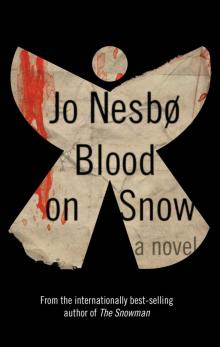 Blood on Snow: A novel
Blood on Snow: A novel Police: A Harry Hole thriller (Oslo Sequence 8)
Police: A Harry Hole thriller (Oslo Sequence 8) Doctor Proctor's Fart Powder: The Great Gold Robbery
Doctor Proctor's Fart Powder: The Great Gold Robbery Bubble in the Bathtub
Bubble in the Bathtub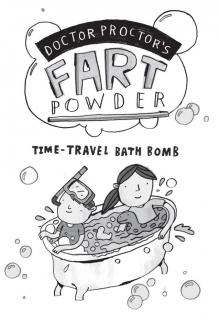 Doctor Proctor's Fart Powder: Time-Travel Bath Bomb
Doctor Proctor's Fart Powder: Time-Travel Bath Bomb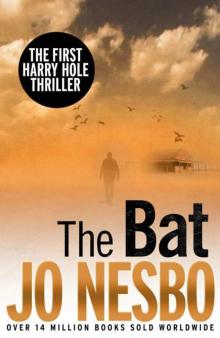 The Bat
The Bat Doctor Proctor's Fart Powder: The End of the World. Maybe.
Doctor Proctor's Fart Powder: The End of the World. Maybe. Silent (but Deadly) Night
Silent (but Deadly) Night Who Cut the Cheese?
Who Cut the Cheese? Headhunters
Headhunters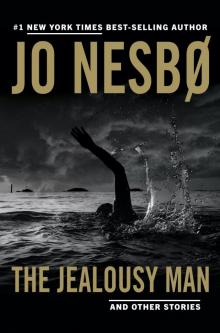 The Jealousy Man and Other Stories
The Jealousy Man and Other Stories Harry Hole Mysteries 3-Book Bundle
Harry Hole Mysteries 3-Book Bundle The Thirst
The Thirst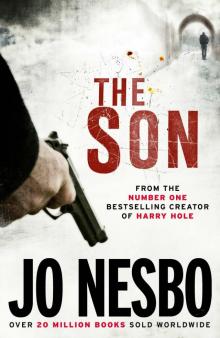 The Son
The Son The Redeemer
The Redeemer The Kingdom
The Kingdom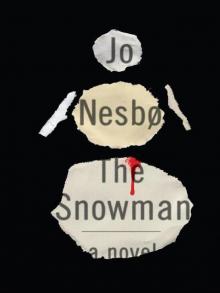 The Snowman
The Snowman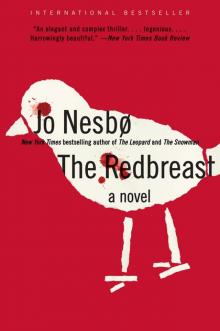 The Redbreast
The Redbreast Phantom
Phantom Macbeth
Macbeth The Leopard
The Leopard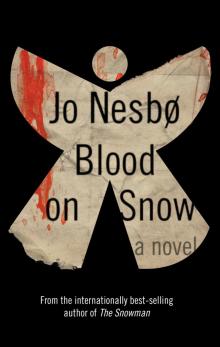 Blood on Snow
Blood on Snow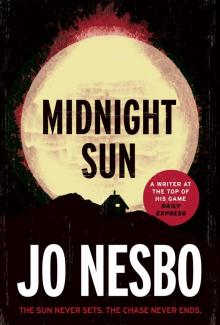 Midnight Sun
Midnight Sun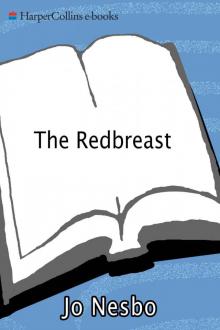 The Redbreast (Harry Hole)
The Redbreast (Harry Hole)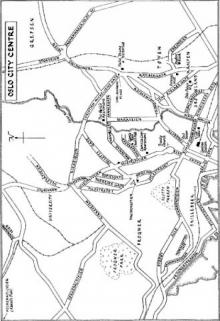 The Devil's Star
The Devil's Star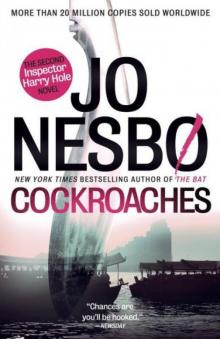 Cockroaches
Cockroaches The Magical Fruit
The Magical Fruit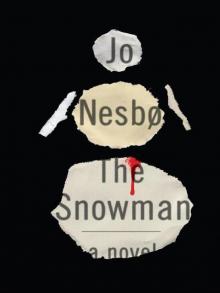 The Snowman: A Harry Hole Novel
The Snowman: A Harry Hole Novel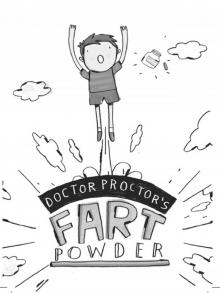 Doctor Proctor's Fart Powder
Doctor Proctor's Fart Powder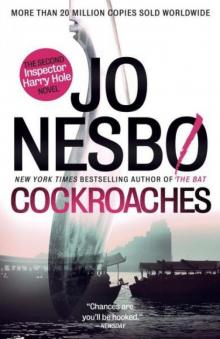 The Cockroaches
The Cockroaches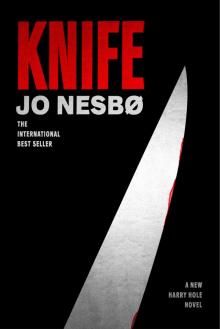 Knife
Knife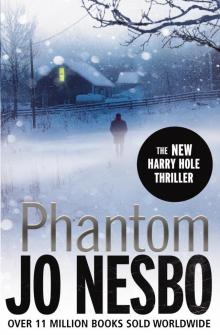 Phantom hh-9
Phantom hh-9 The Redbreast hh-3
The Redbreast hh-3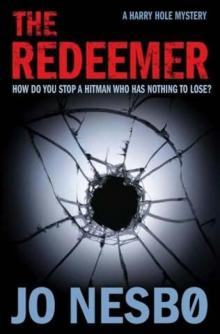 The Redeemer hh-6
The Redeemer hh-6 The Leopard hh-8
The Leopard hh-8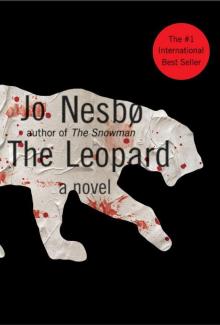 The Leopard: An Inspector Harry Hole Novel
The Leopard: An Inspector Harry Hole Novel The Great Gold Robbery
The Great Gold Robbery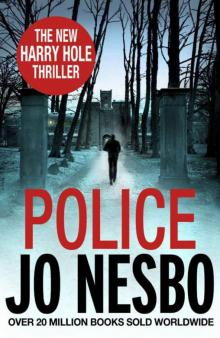 Police hh-10
Police hh-10 The End of the World. Maybe
The End of the World. Maybe The Thirst: Harry Hole 11
The Thirst: Harry Hole 11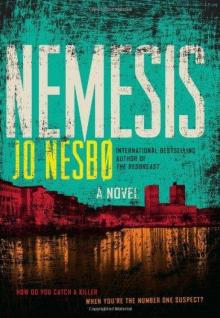 Nemesis - Harry Hole 02
Nemesis - Harry Hole 02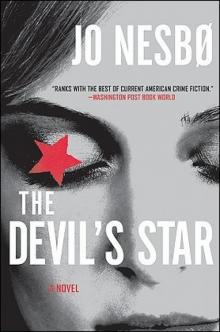 The Devil's star hh-5
The Devil's star hh-5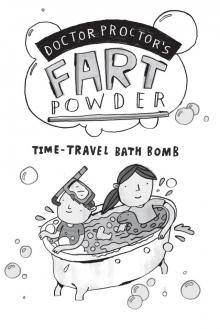 Time-Travel Bath Bomb
Time-Travel Bath Bomb